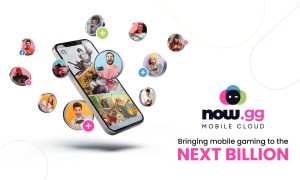Social media has fundamentally changed how individuals and brands communicate. It has revolutionized the way brands connect with their audience and aspiring marketers looking to delve into this often start by enrolling in a Digital Marketing Course. Understanding the significance of social media within Digital Marketing strategies becomes paramount for anyone seeking success in this field. Social media platforms have evolved from mere communication tools to robust marketing channels that offer unparalleled reach and engagement. These platforms serve as the cornerstone for building brand awareness, driving traffic, and fostering meaningful customer relationships.
The Power of Social Media in Digital Marketing
Social media platforms have become a melting pot of diverse demographics, providing marketers with an extensive pool of potential customers. Leveraging these platforms effectively involves crafting compelling content that resonates with the target audience. A well-structured Digital Marketing Course often emphasizes the importance of content creation tailored to different platforms, highlighting the nuances of each medium.
From Facebook’s extensive user base to Instagram’s visually driven appeal and Twitter’s rapid-fire updates, each platform offers distinct advantages. Understanding the algorithms, user behavior, and content preferences across these platforms becomes crucial in formulating a comprehensive digital marketing strategy.
Enhanced Brand Visibility and Reach
Digital Marketing courses stress the significance of brand visibility in a cluttered online space. Social media acts as a catalyst in amplifying brand visibility by enabling content to reach a vast audience swiftly. Engaging posts, captivating visuals, and interactive content encourage audience participation, thereby organically expanding the brand’s reach.
Additionally, social media platforms facilitate targeted advertising, allowing marketers to tailor campaigns based on demographics, interests, and behaviors. This level of precision targeting ensures that the message reaches the right audience, maximizing the impact of digital marketing efforts.
Engaging in Customer Interaction and Relationship-building
Unlike traditional advertising, social media platforms foster two-way communication between brands and consumers. Interactive features such as comments, shares, and direct messaging enable real-time engagement, allowing brands to address queries, receive feedback, and build a loyal customer base.
A Digital Marketing Course often emphasizes the importance of establishing a strong brand identity and maintaining a consistent brand voice across social media channels. Consistency and authenticity resonate with consumers, fostering trust and long-term relationships.
Measurable Insights and Data Analytics
The beauty of digital marketing via social media lies in its measurability. Platform analytics tools offer valuable insights into campaign performance, audience demographics, engagement metrics, and more. Understanding these metrics is a cornerstone of any Digital Marketing Course, enabling marketers to gauge the effectiveness of their strategies and make data-driven decisions.
Analyzing these insights helps marketers fine-tune their campaigns, optimize content, and allocate resources more effectively. This iterative process of analysis and refinement is crucial for staying ahead in a competitive market.
Community Building and Brand Advocacy
One of the significant advantages of social media within digital marketing is its ability to create a sense of community around a brand. Brands that foster communities around their products or services on platforms like Facebook groups or LinkedIn communities often witness increased brand advocacy. These communities serve as spaces where customers can connect, share experiences, and become brand advocates by recommending products or defending the brand during discussions.
Digital Marketing Courses often highlight the strategies for cultivating and nurturing these communities, understanding that an engaged and loyal community can significantly impact a brand’s success.
Social Listening and Customer Insights
Beyond just posting content, social media allows brands to engage in social listening—monitoring conversations around their brand, industry, or competitors. This practice offers invaluable insights into consumer sentiments, preferences, and pain points.
By incorporating social listening techniques taught in Digital Marketing Courses, marketers can gather real-time feedback, understand customer needs, and tailor their marketing efforts accordingly. This proactive approach enables brands to address concerns swiftly, leading to improved customer satisfaction and retention.
Integration with Other Digital Marketing Channels
Social media doesn’t operate in isolation; it integrates seamlessly with other digital marketing channels. A holistic digital marketing strategy taught in courses often integrates social media with email marketing, content marketing, SEO (Search Engine Optimisation), and PPC (Pay-Per-Click) advertising.
Understanding how social media aligns and complements other channels amplifies the overall impact of digital marketing campaigns. Social media can promote blog content, drive website traffic, or complement influencer collaborations, creating a cohesive brand presence across various platforms.
Conclusion
The intertwining of social media and digital marketing has redefined the way businesses engage with their audience. A well-crafted digital marketing strategy leveraging social media’s power is indispensable for brands aiming to thrive in the digital realm. Enrolling in a Digital Marketing Course becomes a stepping stone for aspiring marketers, providing them with the necessary insights and expertise to navigate the ever-changing landscape of social media-driven digital marketing.



































































